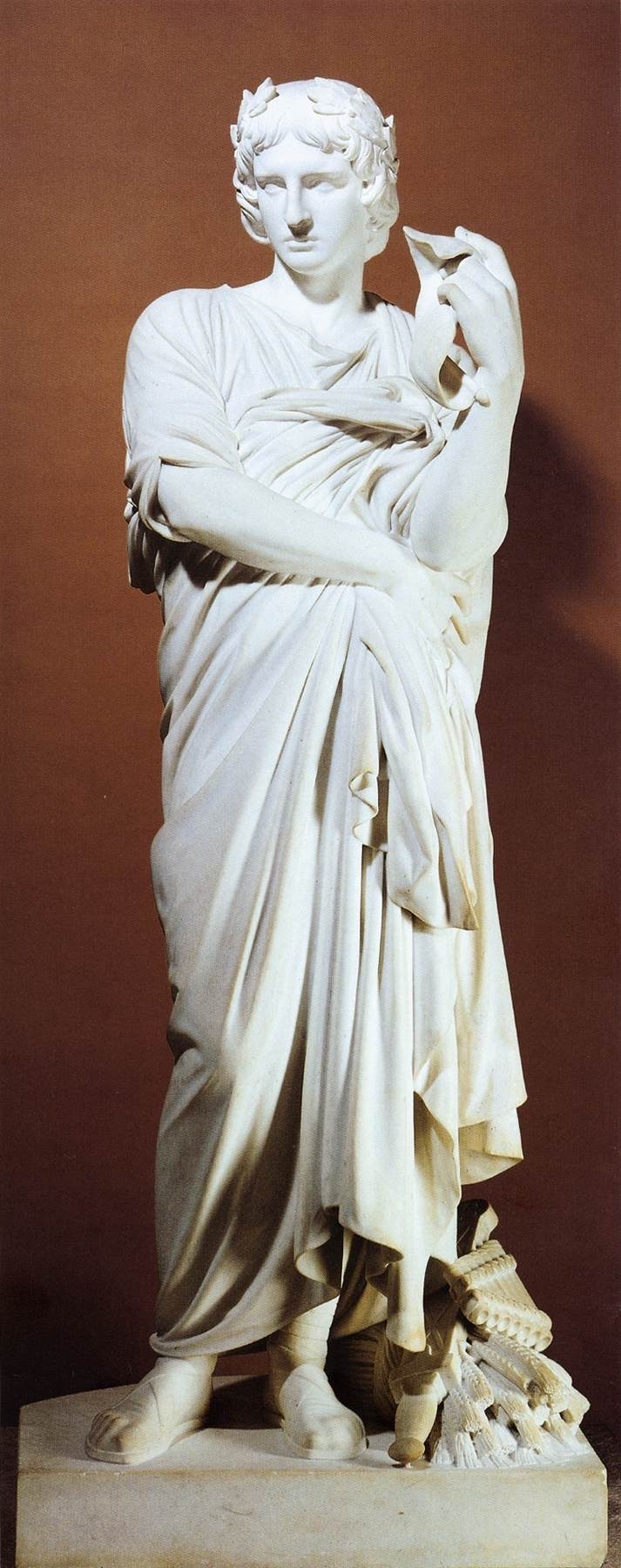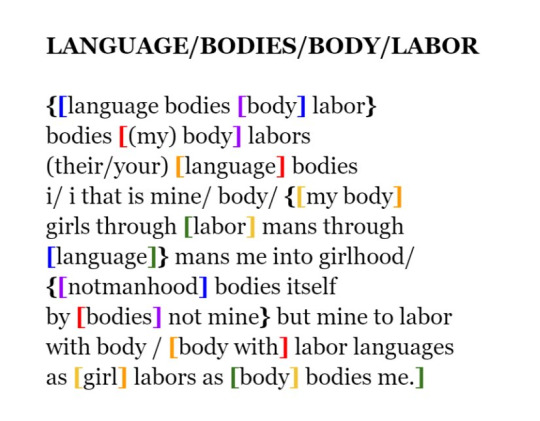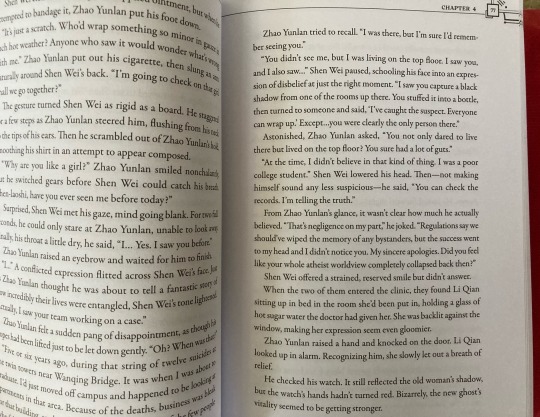#Language Embodiment
Explore tagged Tumblr posts
Text

Sculpture of Vergil by Gabriel Jules Thomas. I appreciate how the entire art world has decided, with no evidence to go on except the sound of his poems, that he was an exquisitely elegant pretty boy with great hands.
#the only sources we have say he was sort of a gawky rustic-looking dork tbh#I prefer this version#may we all be remembered as the embodiment of the most beautiful thing we ever created#virgil#tagamemnon#aeneidposting#aeneid#divina commedia#latin language
79 notes
·
View notes
Text
Scaled and icyyyyyyyyyy. What to even say. I admit I was not its biggest defender when it hit the ground in 2021 but it has grown on me so much over the last few years. Visually their most beautiful and cohesive era that tells such a specific and clear story all on its own. Sonically so fresh and bouncy and served as Tyler's "back to basics" self produced project where you can tell he was having fun trying new sounds out for the band while keeping a very specific feeling and energy throughout.
The almost genuinely horrific dissonance set up on Good Day between this very peppy bright music, and absolute crushing misery and isolation. Constant references to self-medication/allusions to addiction. Clinging to how the world used to be because how it is now is unbearable (hello ongoing pandemic). Clinging also to imagination as an escape and a form of freedom - but that can only get you so far, really. The first album where we properly got to know/understand clancy imo (obviously he was present during trench but it was much more subtle back then since we only had dema org to work with, sai gave us the livestream and very lore heavy shows and more heavily narrative videos).
Regardless of how the boys might feel about scaled and icy after the fact due to its reception ("kinda wishing that I never did saturday") to me it's so clearly the album/era where they fully realized they could just go for it, whatever it was, and we would follow them and have a good time. Both in terms of basically becoming a full-blown concept band & in terms of the music itself.
I know we all adore redecorate and did from the moment it dropped but I also truly believe songs like saturday and mulberry street are some of tyler's best production work ever. Choker is one of my all time favorite songs of theirs. The livestream gave us both the heathens/trees mashup and the jumpsuit/hds mashup & then we ALSO got mtv unplugged out of this era ?? For being a peak early covid album it still gave us some of their best live material ever. And ofc tyler's sparkly jacket and miss faux fur shirtless diva josh dun.
SAI is probably the tøp album I have the least weird personal emotional baggage tied to, which is why this post has actually been about the music lmao. But I respect the music so much. And I also appreciate this era so massively for seeming to have brought a good number of people into the fandom :-) there is no bad first pilots album to have but SAI is a really special one I think. Love you forever girliepop <3 happy birthday

#twenty one pilots#scaled and icy#I thought I'd made a specific appreciation post about it on here but after going thru my pilots tag I don't see one#I just really think this album is neat it's musically so solid and as a concept project it's fucking immaculate#like we do not collectively talk enough about its visual language i don't think#(or the visual language of tøp in general bc it's always been really strong and intentional#sai just embodies such a specific time and feeling and energy#while also being universal enough to be understandable and non-pretentious#and it makes me gnash my teeth)
10 notes
·
View notes
Text

on (language around) transfeminine bodies as sites of social-reproductive labor
#coming back with this#i would appreciate some help with the ID/alt text since i'm unsure how to get the color-coding across#but yeah this came about during my re-read of blue period#an attempt at articulating my feelings on gendered language around/ employed by trans ppl in sex(-adjacent) work#wherein gender(ed) embodiment is policed & validated through performance of heteronormative desire as/for labor#re: yuka. ough#writers on tumblr#poets on tumblr#transgender poetry#trans poetry#lgbt#words
94 notes
·
View notes
Text




Just received my English translation copy of Zhenhun … the artwork is so pretty!
#now I have the og version in Chinese and an English version to le collection#guardian#镇魂 guardian#沈巍#text post#at the back it says inspired a live action drama w/o saying name of it xD since the drama killed them both off for no reasons the book wins#killing off Shen Wei? unforgivable killing of my baobei playing the living embodiment of Shen Wei? ya banished youku#zhao yunlan#I’m glad the illustrations don’t look like their actors (Shen Wei aside ZYL was the living embodiment of him) but it’s appreciated#as a book fan it’s my mission to buy all the versions in all the languages if possible xD#priest#I love this book so much it needs to be retold properly in a drama with the happy ending pls
81 notes
·
View notes
Text
finding a song that fits one of my ocs and letting it consume my life for the next three days has become one of my all time favourite activities
#the dopamine rush is unmatched i swear#rambles belowwww#ive had language of the lost playing for nearly four hiurs running now because it fits bones so well#like SO WELL YOU DONT UNDERSTAND#CHILDHOOD TO PRESENT THIS SONG EMBODIES HER#'Am I a robot or a doll? Am I anything at all?' CMON NOW#'I lost my identity oh so very long ago' LIKE THATS HER THATS SO HER#'I thought that i was safe now i'll never be the same' ABDOWIWHRNEIDNESND#'But these fingers and these palms full of love despite the scars' I CAN'T I CANNOT I AM FLOORED#Honestly this also goes for Arya and 'Everything Is Fine' by Qbomb#'but then i go and cope by getting angry everytime i fail to contain the itch fuck it time to hit the switch'#thats it thats her thats Arya#'Slow down and breathe calm down my mind lie to myself and say EVERYTHING IS FINE' AAAAAAA#even just the instrumentals fit her perfectly#UGHHHH I LOVE ASSOCIATING MY OCS WITH MUSIC SO MUCH#honestly makes going about the day while hyperfixating on them easier lmao#maybe i'll drop their playlists soon hmmmmmm#i have em on public its very doable#soon soon#had to get that out of my system im sorry#ocs#my ocs#oc rambles#oc posting
3 notes
·
View notes
Text
The Philosophy of the Tongue
The philosophy of the tongue explores the role of the tongue as both a physical organ and a symbol, focusing on its functions in communication, taste, and expression. As a central part of human anatomy, the tongue plays a vital role in speaking, tasting, and sensing, and thus it holds deep philosophical significance across various domains such as language, sensory perception, identity, and ethics.
Key Themes in the Philosophy of the Tongue:
Language and Communication:
The tongue is essential for articulation and speech, making it a key symbol for human language. Philosophically, the tongue embodies the ability to communicate, connect, and convey meaning through words.
The philosophy of language, particularly in the works of figures like Ludwig Wittgenstein and Noam Chomsky, has delved into how language shapes thought and social interaction. The tongue, as the organ responsible for producing speech, becomes a symbol of the human capacity for reason, dialogue, and understanding.
Taste and Sensory Experience:
The tongue is central to the sense of taste, one of the primary ways we engage with the material world. The act of tasting links the tongue to pleasure, desire, and sensory knowledge.
In philosophical discussions of aesthetics, taste is often used metaphorically to describe discernment and judgment, as in having “good taste.” The tongue, in this sense, is connected to one's ability to appreciate beauty, art, and culture.
Ethics and the Power of Speech:
The tongue also holds ethical significance due to its role in speech. Moral philosophers have long debated the ethics of speech acts, such as truth-telling, deception, and slander. The tongue, as the physical medium of these acts, is often regarded as a powerful tool that can be used for both constructive and harmful purposes.
Eastern philosophies, such as Confucianism and Buddhism, emphasize the ethical responsibility associated with speech. Words spoken by the tongue can uplift, educate, or heal, but they can also cause harm, create division, and foster misunderstanding.
The Tongue as a Symbol of Identity:
The tongue is often associated with linguistic identity and culture. The languages we speak are often tied to our cultural, ethnic, or national identities, and thus the tongue becomes a symbol of who we are.
Philosophers of identity, such as Charles Taylor, have explored the role of language in shaping personal and collective identity. The metaphor of “speaking in tongues” or “mother tongue” reinforces the idea that the tongue connects individuals to their cultural heritage and sense of belonging.
The Tongue and Desire:
The tongue’s role in taste and sensory experience ties it to desire and the pursuit of pleasure. Philosophers like Plato and Aristotle discussed the role of the senses in human behavior, particularly how sensory pleasures, including taste, can influence moral choices.
In modern philosophy, thinkers such as Gilles Deleuze and Michel Foucault have examined how bodily desires, including those mediated by the tongue, shape human behavior and societal norms.
The Tongue and Control:
The ability to control one's tongue—both in the literal sense of mastering speech and in the figurative sense of exercising restraint in communication—has long been a theme in philosophical and religious thought.
Stoic philosophers, such as Epictetus and Marcus Aurelius, advocated for the discipline of speech, emphasizing that the tongue should be used wisely and only for the good. The idea of "holding one's tongue" or speaking carefully is linked to broader ethical discussions about self-control and virtue.
The Tongue as a Dual Symbol:
Throughout history, the tongue has been seen as a dual symbol of creation and destruction. In many religious traditions, such as Hinduism, the goddess Kali is depicted with her tongue out, symbolizing both the power to destroy and to bring about renewal. Similarly, the tongue is seen as a medium for both blessing and cursing in Christian and Islamic teachings.
This dual nature of the tongue reflects the philosophical tension between its potential for good and harm. It embodies both wisdom and foolishness, healing and harm, highlighting the importance of mindfulness in how it is used.
Philosophy of the Body and Embodiment:
In the broader philosophy of embodiment, the tongue is a key organ in understanding how humans engage with the world. The tongue's ability to taste and speak connects the body to both material and symbolic realms.
The tongue mediates between the internal world of desires, needs, and perceptions, and the external world of objects, food, and language. This dual role makes it a central point of inquiry in understanding the body’s interaction with its environment and society.
Tongue and Social Power:
The ability to speak well or to command attention with words has historically been linked to social power. Philosophers like Aristotle in his Rhetoric discussed how the art of persuasion through speech is a form of power. The tongue, as the organ of speech, symbolizes the ability to influence, lead, or control others through rhetoric.
Cultural and Religious Symbolism:
In many cultures, the tongue is associated with specific rituals and taboos. For example, in some traditions, silence is a form of spiritual discipline, emphasizing the tongue's power. Conversely, in certain rites of passage, speaking or chanting is a way of invoking the divine or demonstrating one’s maturity and status.
The philosophy of the tongue explores how this small organ plays an outsized role in shaping human experience. Through its functions in language, taste, and expression, the tongue is central to communication, identity, desire, and ethics. Philosophically, it serves as a symbol of both human potential and vulnerability, offering a rich terrain for inquiry into the nature of speech, sensory experience, and ethical responsibility.
#philosophy#epistemology#knowledge#learning#education#chatgpt#ontology#metaphysics#psychology#Philosophy of Language#Ethics of Speech#Sensory Perception and Taste#Embodiment and Identity#Rhetoric and Social Power#Speech Acts and Ethics#Desire and Sensory Knowledge
6 notes
·
View notes
Text
Started reading Lymond Chronicles after @deadendtracks' comment that SK must've read them too / based Tommy on Lymond....
and like i'm what, at ch3 or 4 maybe and...
yeahhhhhhhhhh XD
#i don't mind what crimes i commit as long as they've got a sensible purpose#johnnie the offsider gypsy#by god i'll give you one night to remember the head of your family by (says the elder brother)#also vaguely robin hood ish / will scarlet etc#i do like the very very different prose (same affection for it that i had for the different prose in the Witcher books)#the purple proseness of description which somehow is still very sparing (no long descriptive paragraphs just 1-2 thick sentences) versus#the intense vernacular used in dialogue. i am mildly over the homogenisation of the 'no style' style in current sf/fan genres#the interesting thing is how Dunnett herself in the a/n says how she was trying to craft a certain persistent masculine trope/character#not her exact words but this undercurrent 'Type' of criminal out there#and tommy and lymond (class difference aside) sit in that space#the other thing i think tho.did SK do it from the beginning or did he start to lean harder into that after seeing CM in S1#I feel certain routes/themes wouldn't have worked with a different kind of actor and later seasons built more and more on CM's strengths#like the descent into S5/S6 imagery and the sheer symbolic/poetic language wouldn't have worked with statham at all...if it ever got there#tim mielants to steven knight while contemplating cm ordinarily drinking his coffee 'he has become the embodiment of my brothergrief'
13 notes
·
View notes
Text

—Death is / just down the street; is most obliging neighbor
Gwendolyn Brooks
#writing#poetry#girlblog#gwendolyn brooks#she’s one of my favorite poets#her style of writing perfectly combines colloquial language and deep poetic style#her storytelling is so perfect#her writing is just the embodiment of human#I love
2 notes
·
View notes
Text
chizuru describe things like a normal sane person challenge (IMPOSSIBLE)
#literally the embodiment of 'aw a cute lil guy' 'oh he's fucked up actually'#she says some shit during those bloodlust scenes.#like out of all the words in the english and japanese languages combined. you chose those huh. wild
3 notes
·
View notes
Text
"Mellondoor"
i panicked while commenting on a fic the other day & now i finally have a shipname for Narvi/Celebrimbor.
#narvi/celebrimbor#mellondoor#tolkien memes#narvi#celebrimbor#khazad dûm#you are welcome for this terribly terrible tag name#the trouble with tolkien & shipnames is that tolkien invented like 8 languages for the legendarium so portmanteaus can go hilariously wrong#for example i have realised the nicest shipname i can think of for galadriel/celeborn#is celebrian which#that is literally what they named their daughter. their daughter is their shipname#whoever magicked up russingon deserves a trophy bc most every option for elf/elf ends up sounding like a legit name#and then we have angbang#or silvergifting & both þauron ships somehow embody their shipnames to unholy degrees#just as þauron intended wait i want to save that tag to use later#the þ is derogatory wait that is ALSO a possibly useful tag#and þey all lived happily ever after
11 notes
·
View notes
Text
i'm never knowingly going to reblog a post that includes the phrase 'touch grass,' and that's not because i don't think it can be psychologically beneficial to get in some outdoor time if possible—i went for a walk earlier! it was great!—or to take a break from conversations that are getting you wound up, but because i think that particular wording generally reveals two things:
first, that the writer is speaking not from a place of genuine concern and sympathy, but from judgmental impatience à la 'get therapy,' which—i too have felt judgmental and impatient in my time, god knows! but when i feel that way i try to go unpack those feelings in private with a thoughtful friend, instead of pretending they constitute a source of wisdom or a helpful sort of energy to direct at people, you know? and i'm definitely not particularly interested in boosting a ventpost from someone else—who pretty clearly hasn't bothered to take the breather they're urging on others, if they're making little digs like that—as if it were actually sincere, carefully-reasoned advice.
and second, that the writer's argument embraces some seriously sloppy assumptions, which pretty immediately undermines my trust in the rest of their analysis—i mean, there's absolutely no guarantee someone's local scene will be any less parochial, just because it's playing out irl! there's also not actually a clean divide between 'people who spend time in the Real World' and 'people who spend time on the internet, which is for porn losers,' as demonstrated by a number of phenomena including, again, the aforementioned grass-recommenders' own presence right here on tumblr…
anyway. obviously we all have our own particular lines we draw around particular rhetoric that bugs us! these are just some reasons why that particular phrasing bugs me.
#language#metatumbling#like. if what you mean is 'your stance would be totally incongruous outside the microcommunity you're speaking to'?#say that!#but also—it's fine to speak to the state of affairs in a microcommunity‚ actually#you just need to define your parameters#but like. so do people who are speaking to Broader Culture bc like. *which* broader culture.#even if you mean American Cishet Culture there are. so many kinds. new york ≠ nebraska.#but anyway it's just like. stop fucking making (and reblogging) these implicit ad hominem arguments#about how people who disagree with you must be idiots and losers because they don't get out enough#if they really are wrong you ought to be able to argue against them without resorting to digs any real leftist ought to be ashamed of#and if spending all one's time in the physically-embodied socially-embedded world really stopped people from being wrong…#well. pretty sure a lot fewer people would be wrong about things‚ if that were true.#anyway i left this to rot in drafts last week for prolixity reasons#and like. it remains guilty of those crimes but they don't render its fundamental assertion untrue.#anyway fundamentally this is the sort of thing you immediately sound like a 'terminally online' loser for protesting and i realize that#but like. if we refuse to open conversational doors because we're scared of the shame bucket someone juvenile balanced on top of them…#fuck that. i decline to live in fear of implicit rhetorical bully tactics.
8 notes
·
View notes
Text
my girlfriend speaks so much like jose

#xelle.gush#NO WONDER I'M SO ATTRACTED TO HER#she's currently throwing me compliments rn oh my god i#i am. going to die /pos /nsrs#how is she so poetic UAVGAIWVWIWVEUBEDIFFNJGKGK#GOD.#she's giving me the most poetic compliments i'm going to uaaeicgeihwiebrifjfntotng#the other day she came by and i was cooking rice then i looked back at her and she winked at me#and i couldn't help the smile growing on my face and i quickly turned around again and I HEARD HER LAUGH UGDGRGHTJFBTJFNGJGK#HER WINK STILL GETS ME. IT'S THE REASON WHY I LIKED HER IN THE FIRST PLACE#SHE'S SO HANDSOME HSHUSUSVWIHWGEIRHRIFNG WITH HER WORDS AND EVERYTHING#SOMEBODY STOP HER /NSRS#i loved my f/o's so hard they turned into a real person. she's literally an embodiment of my main f/o's#sobss.. s.. mmmrmntmm...... y'all know how words are my primary love language#she's satisfying it...... tjidhwiwhrirjtntkgk#{ 💕 } gf.post
3 notes
·
View notes
Text
Side note, but god, the sociolinguistic papers you could write about tumblr dot com...
Well, I mean, I did write one for my senior capstone project lol, but that was about viewing a specific fandom as a speech community. I'm talking about the political language on tumblr
#like yeah in general you can talk about tumblr as a sort of 'speech community'#and do a paper on the site as a whole#but no the political language on tumblr (and the online left in general but tumblr embodies a lot of it)#is something to be studied
0 notes
Text
There's this sort of anthropomorphizing that inherently happens in language that really gets me sometimes. I'm still not over the terminology of "gravity assist," the technique where we launch satellites into the orbit of other planets so that we can build momentum via the astounding and literally astronomical strength of their gravitational forces, to "slingshot" them into the direction we need with a speed that we could never, ever, ever create ourselves. I mean, some of these slingshots easily get probes hurtling through space at tens of thousands of miles per hour. Wikipedia has a handy diagram of the Voyager 1 satellite doing such a thing.

"Gravity assist." "Slingshot." Of course, on a very basic and objective level, yes, we are taking advantage of forces generated by outside objects to specifically help in our goals. We're getting help from objects in the same way a river can power a mill. And of course we call it a "slingshot," because the motion is very similar (mentally at least; I can't be sure about the exact physics).
Plus, especially compared to the other sciences, the terminology for astrophysics is like, really straightforward. "Black hole?" Damn yeah it sure is. "Big bang?" It sure was. "Galactic cluster?" Buddy you're never gonna guess what this is. I think it's an effect of the fact that language is generally developed for life on earth and all the strange variances that happen on its surface, that applying it to something as alien and vast as space, general terms tend to suffice very well in a lot more places than, like... idk, botany.
But, like. "Gravity assist." I still can't get the notion out of my head that such language implies us receiving active help from our celestial neighbors. They come to our aid. We are working together. We are assisted. Jupiter and the other planets saw our little messengers coming from its pale blue molecular cousin, and we set up the physics just right, so that they could help us send them out to far stranger places than this, to tell us all about what they find out there.
We are assisted.
And there is no better way to illustrate my feelings on the matter than to just show you guys one of my favorite paintings, this 1973 NASA art by Rick Guidice to show the Pioneer probe doing this exact thing:

"... You, sent out beyond your recall, go to the limits of your longing. Embody me. ..."
Gravity assist.
#space#astronomy#astrophysics#language#paintings#the antidote to despair is awe#the quote is from the poem ''go to the limits of your longing'' by rainer maria rilke and translated by joanna macy#druid speaks#the thing that got me thinking about this was watching Animation VS Physics tbh#because the whole gravity assist section is so epic in scale and the music swells and its so. Romantic in the art movement sense#i mean the whole thing is epic like that. but seeing the term ‘’gravity assist’’ pop up did something to my brain specifically
17K notes
·
View notes
Text
The Neuro-Linguistic Architectures of Tacit Knowledge Emergence in Large Language Models: A Comparative Analysis with Human Cognition and Buddhist Epistemology
Whatever side you are on, we are witnessing a burgeoning of artificial intelligence, particularly in the advancements in Large Language Models (LLMs), which compels a re-evaluation of fundamental epistemological questions concerning knowledge acquisition, especially the elusive domain of tacit knowledge. Photo by Google DeepMind on Pexels.com This short post will delve into the neuro-linguistic…

View On WordPress
#AI#amygdala#Anumāna#apramāṇa#Artificial Intelligence#basal ganglia#Buddhist Epistemology#buddhist wisdom#cognitive science#consciousness#Deep Learning#Digital Humanities#embodied cognition#epistemology#Future of AI#hippocampus#Human Cognition#linguistics#LLMs#Machine Learning#natural language processing#Neural Networks#Neuroscience#NLP#Philosophy of AI#prajñā#pramāṇa#Pratyakṣa#prefrontal cortex#Raffaello Palandri
0 notes
Text
The Ontology of Concepts
The ontology of concepts explores the nature, existence, and structure of concepts as abstract entities that underpin human thought, language, and knowledge. It investigates questions about what concepts are, how they exist, and their role in cognition and communication. This field overlaps with metaphysics, epistemology, philosophy of mind, and linguistics.
Key Questions:
What are concepts?
Are they mental representations, abstract universals, or tools for categorization?
Do they exist independently of human minds, or are they purely constructed?
How do concepts exist?
Are concepts reducible to physical states in the brain (materialism)?
Are they immaterial and universal entities (Platonism)?
Are they social constructs shaped by cultural and linguistic frameworks?
What is the structure of concepts?
Are concepts static entities or dynamic processes that evolve over time?
How are they related to categories, prototypes, and exemplars?
Theoretical Perspectives:
Platonism:
Concepts exist as timeless, universal forms or abstract objects, independent of human minds.
Conceptualism:
Concepts exist within the mind as mental representations but are derived from shared experiences.
Nominalism:
Concepts do not exist independently; they are merely names or labels we use to group similar objects.
Prototype Theory:
Concepts are structured around prototypes or typical examples, as proposed in cognitive science.
Dynamic and Embodied Perspectives:
Concepts are fluid and shaped by sensory-motor experiences, context, and interaction with the environment.
The Relationship Between Concepts and Language:
Concepts are often tied to linguistic expression, but their existence may not depend entirely on language.
The Sapir-Whorf Hypothesis suggests that language shapes conceptual understanding.
Frege's distinction between sense and reference highlights how concepts mediate between words and the world.
Ontological Issues in Concepts:
Universality vs. Particularity:
Are concepts universal across cultures, or do they vary based on individual or societal contexts?
Independence vs. Dependence:
Do concepts exist independently of human thought, or are they contingent on cognitive processes?
Abstract vs. Concrete:
How do abstract concepts (e.g., justice) relate to concrete ones (e.g., apple)?
Practical Applications:
Artificial Intelligence: Understanding the ontology of concepts aids in developing AI systems capable of abstract reasoning.
Epistemology: Concepts are central to knowledge acquisition and classification.
Cultural Studies: Analyzing how concepts differ across societies illuminates cultural and linguistic diversity.
The ontology of concepts remains a rich and evolving field that bridges multiple disciplines, addressing profound questions about the foundation of human understanding.
#philosophy#epistemology#knowledge#learning#education#chatgpt#ontology#Philosophy of Concepts#Abstract Entities#Mental Representations#Platonism vs. Nominalism#Prototype Theory#Conceptual Frameworks#Embodied Cognition#Philosophy of Language#Cognitive Science#Universals and Particulars#Conceptual Metaphors#Cultural Relativity of Concepts#Artificial Intelligence and Concepts
0 notes